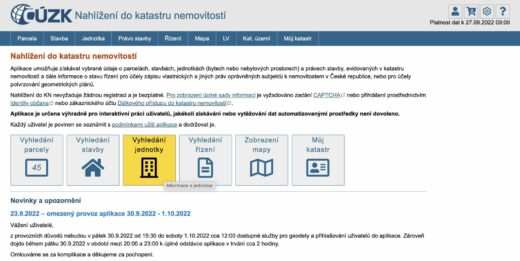#LifeinCzechia Moving to a different country can be stressful in itself. However, there are certain types of apartments that might complicate the process of moving even further. The main reason is that with particular apartments, it might be challenging to get the owner’s signature that you need to get approved at the MOI office. In this article, we will tell you which spaces to avoid as a third-country citizen.

You need to get a confirmation of your Czech residence address for visa purposes.
Housing cooperative/co-op
With the rising price of properties, cooperative housing is often perceived as a cheaper alternative to owning property. The main characteristic of a co-op is that it is a multi-unit building in which the co-op owner has an interest or share. As such, the owner has a contract or lease that allows them to occupy a unit. However, they do not fully own the unit.
The building belongs to a cooperative, which, among other things, manages it. Most co-ops require a purchaser (and also every new tenant) to be approved by the co-op board first.
If you are a third-country citizen interested in living in a co-op, you have to get a signature not only from the owner of the apartment but also from the chairman of the cooperative. Otherwise, the MOI won’t accept your proof of accommodation, and you won’t be able to apply for/extend your residence permit/visa.
Municipal housing
Another type of accommodation you should avoid is municipal housing. The city itself owns these types of apartments. Ordinary municipal flats are administered by individual municipal district offices (ÚMČ). To apply for an apartment, you typically need to visit the municipality or download an application from the municipality’s website. Each municipality or municipal district may have different rules for renting out public flats.
The applications are usually evaluated by the city council, which allocates the flats. For example, Brno-střed either offers applicants housing with a fixed price for rent or uses the ‘envelope method’ (the applicant himself/herself offers the amount of the rent and the town hall only determines its minimum limit).
Once again, since the municipality owns the flat, getting the signature for your proof of accommodation can be tricky. Therefore, we recommend you avoid renting this kind of housing.
Atelier and office spaces
Some apartments, such as ateliers or offices, might not be listed as living spaces. This is problematic. If it is the case for your apartment, you cannot legally live there. You can’t use it for your confirmation of accommodation which you must present to the embassy when moving or applying for residency.
If you are interested in an apartment but don’t know if it’s registered as a living space, you can visit the land registry website, which provides all the critical information. All you need to do is click on ‘vyhledání jednotky’ (searching unit) and fill in the address and the municipality’s name.

The land registry website provides information about units, buildings, or parcels.
Overall, getting a signature for any of these apartments is rather complicated, and we would not recommend it.
If you need help with getting proof of accommodation or with finding a suitable apartment, you can always use our services. Follow us on Instagram, Facebook, and Twitter to get more tips regarding relocation, real estate, and immigration.
Article source: bydlení na doporučení, the Washington Post, socialní péče, penize.cz
Photo source: pexels.com, ČÚZK
